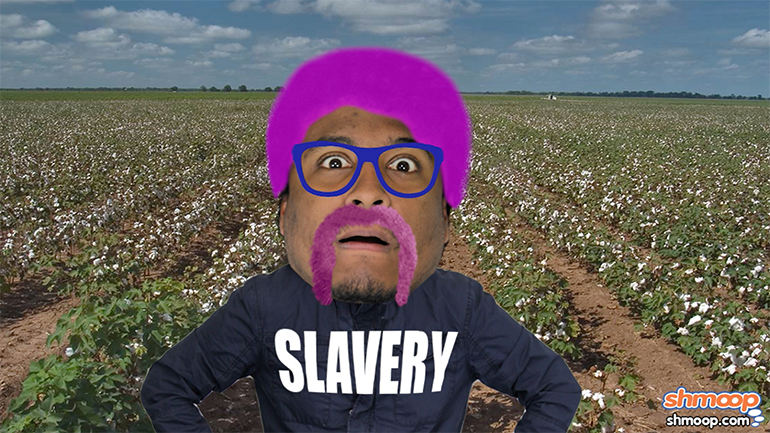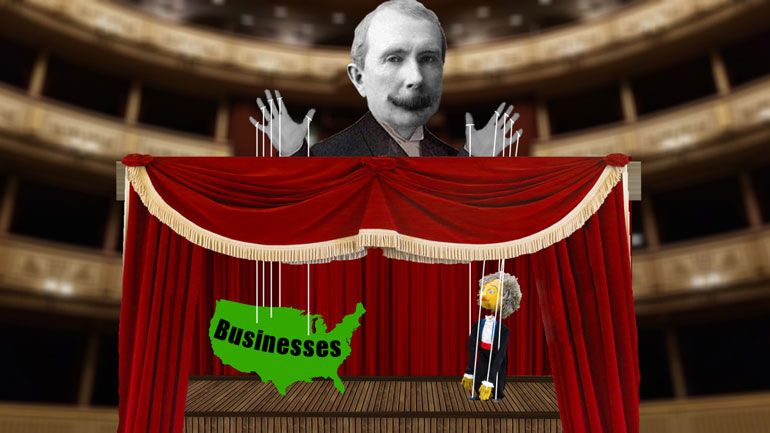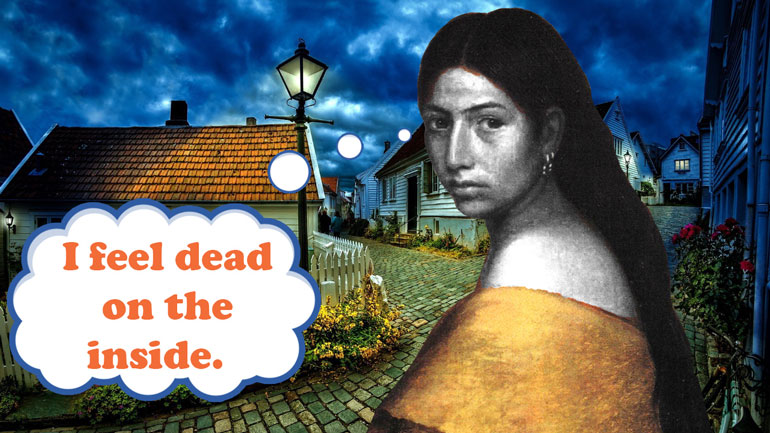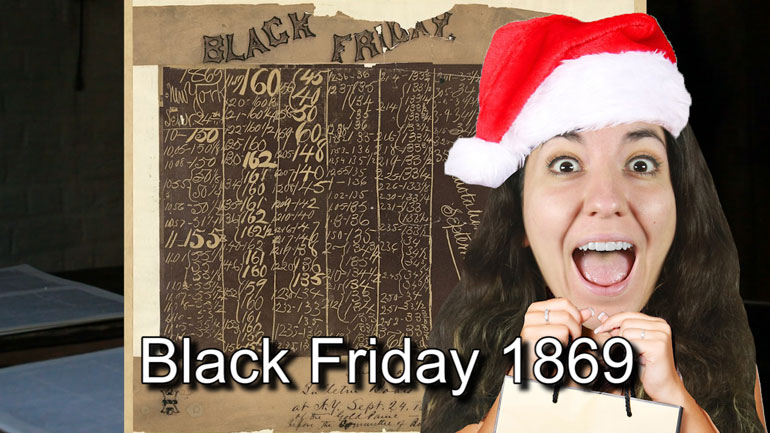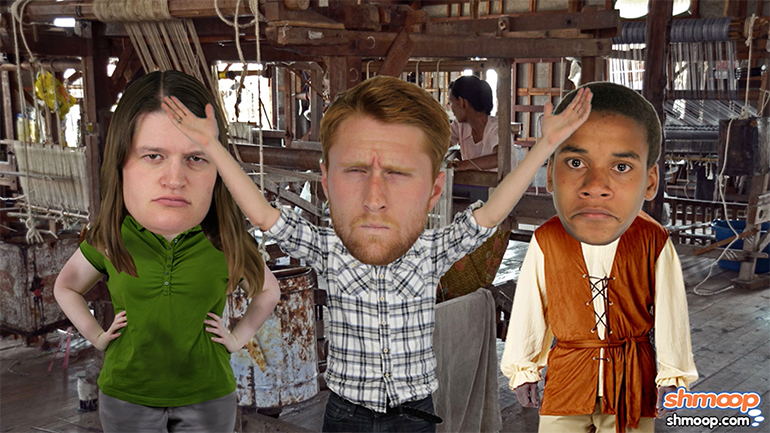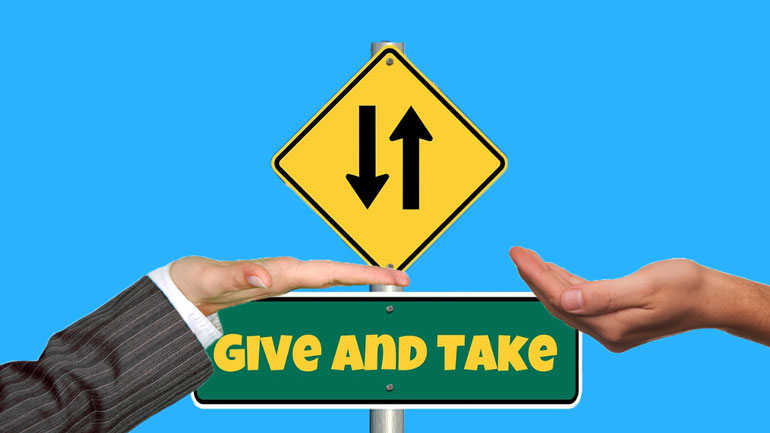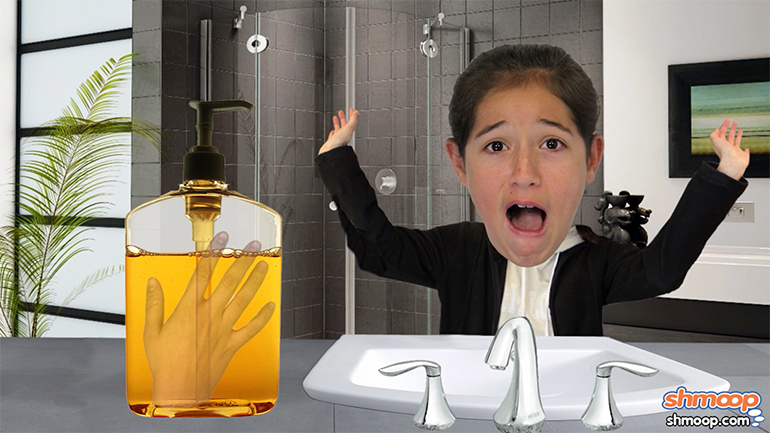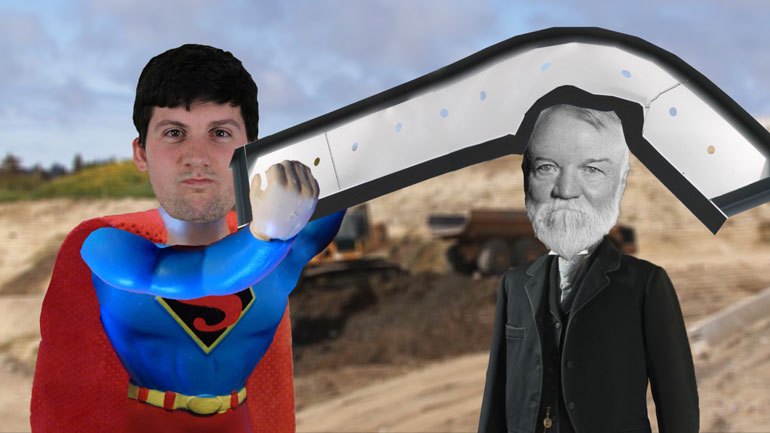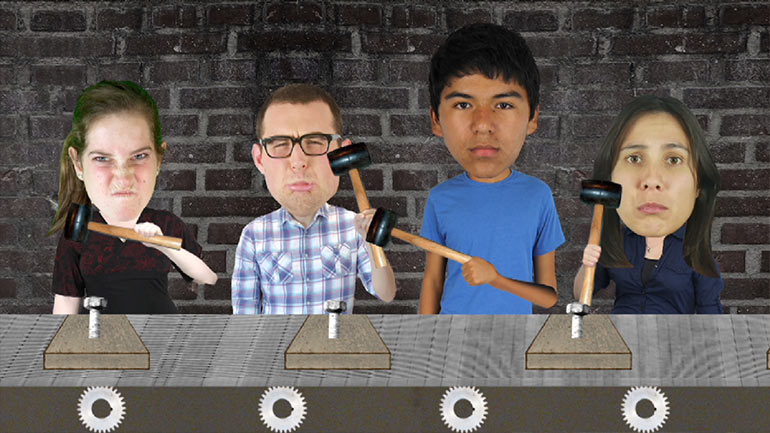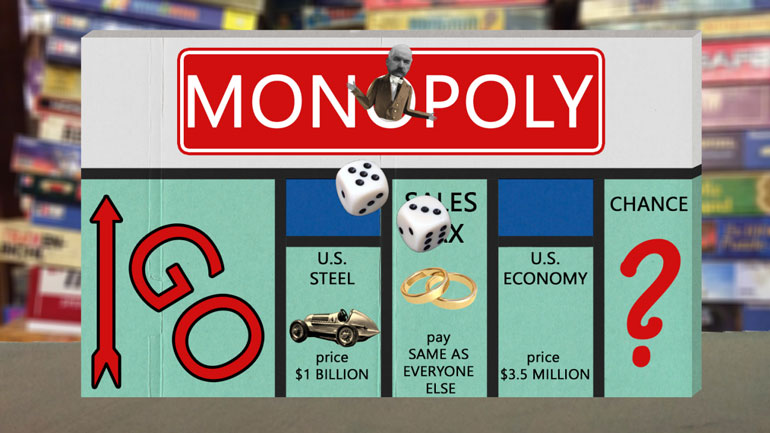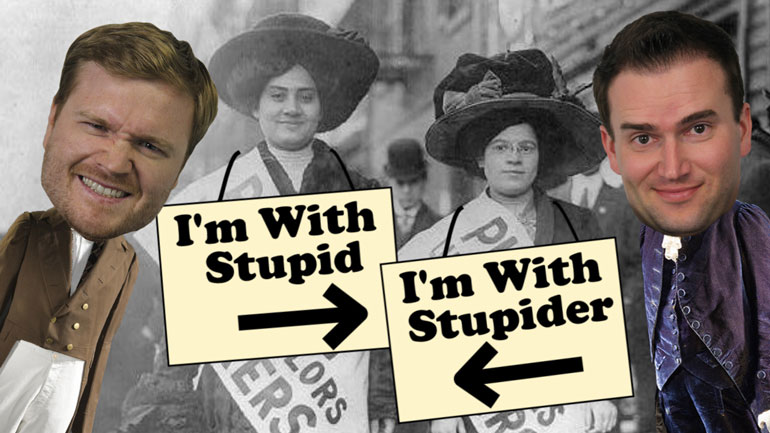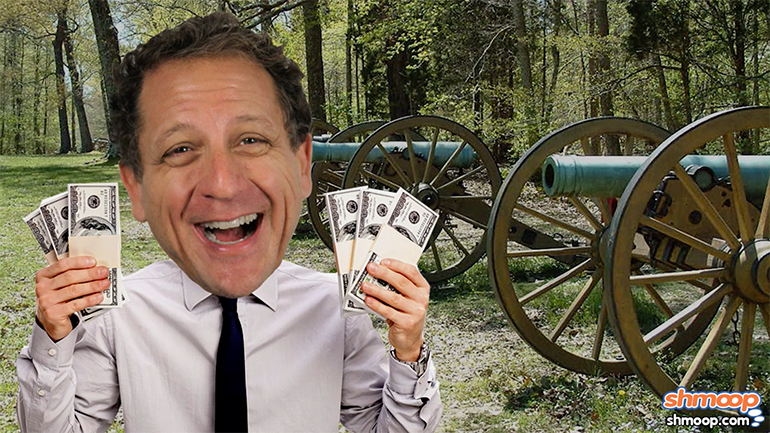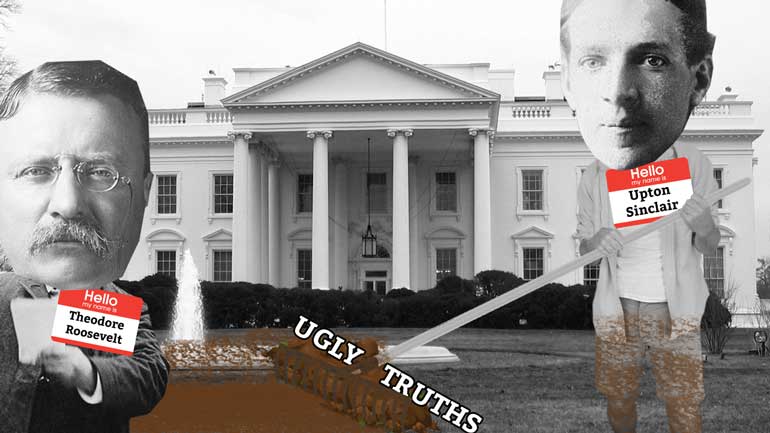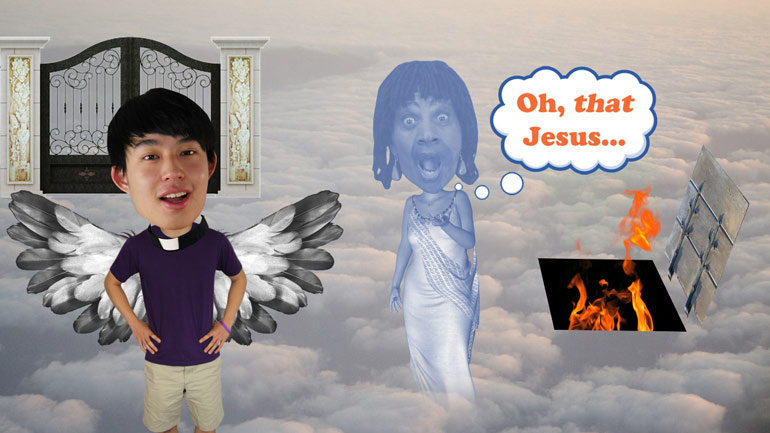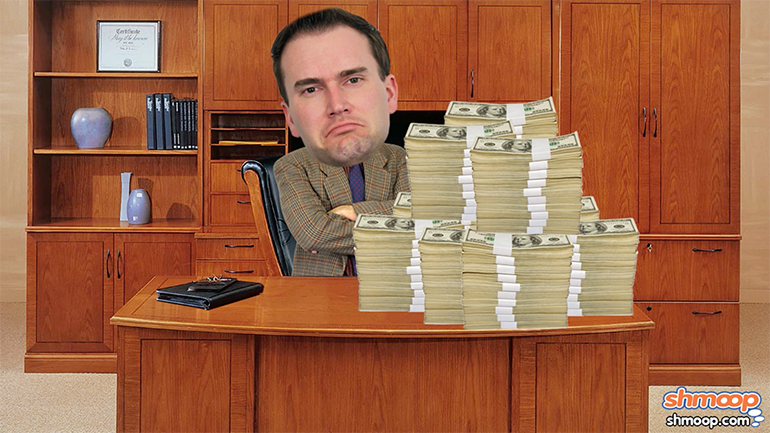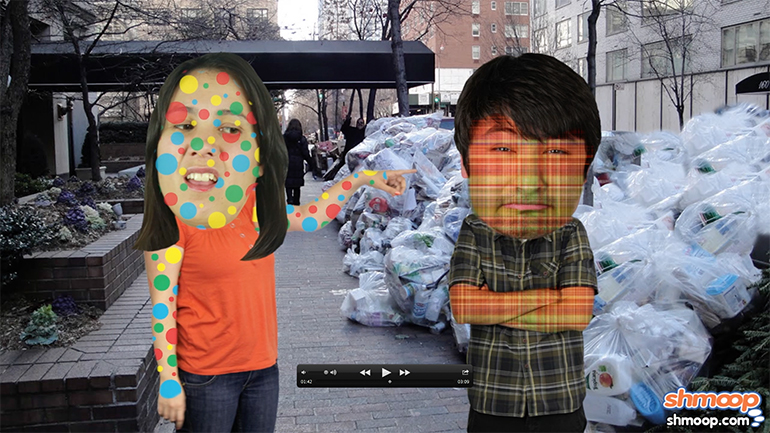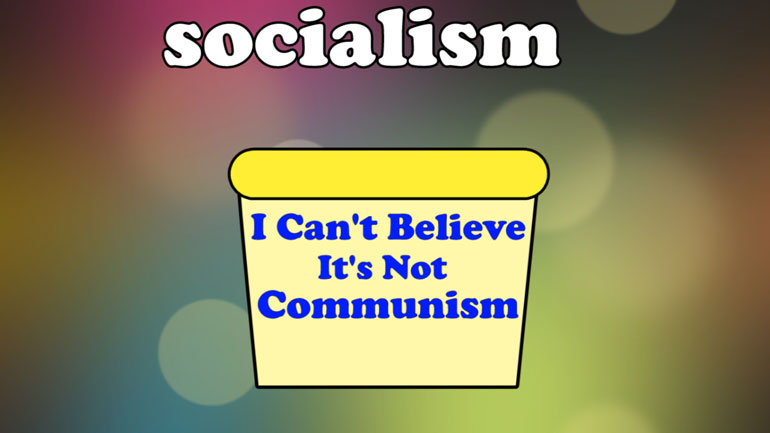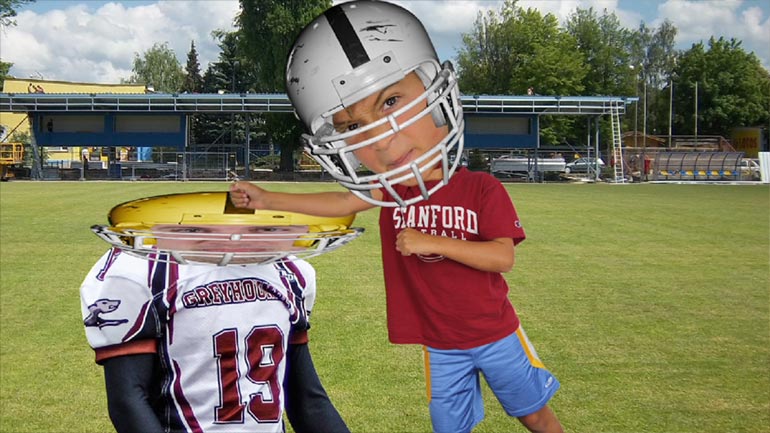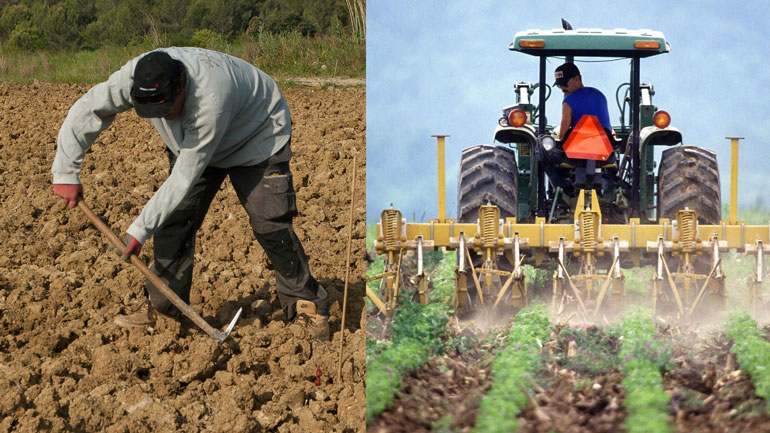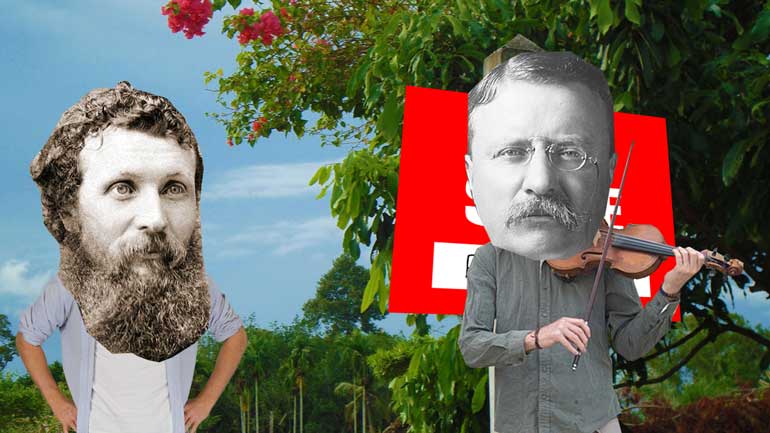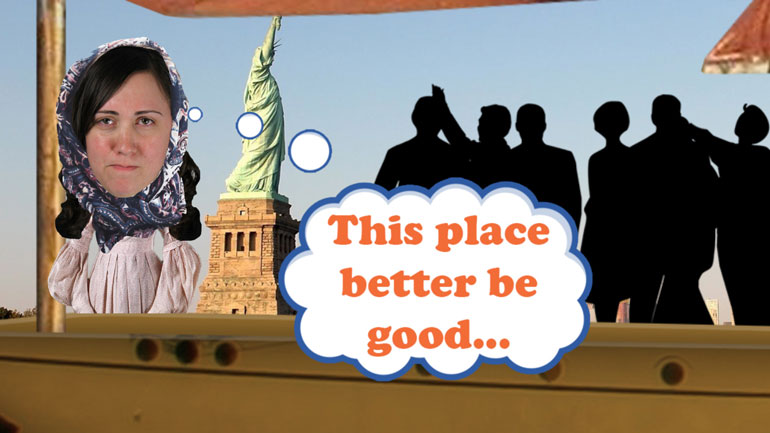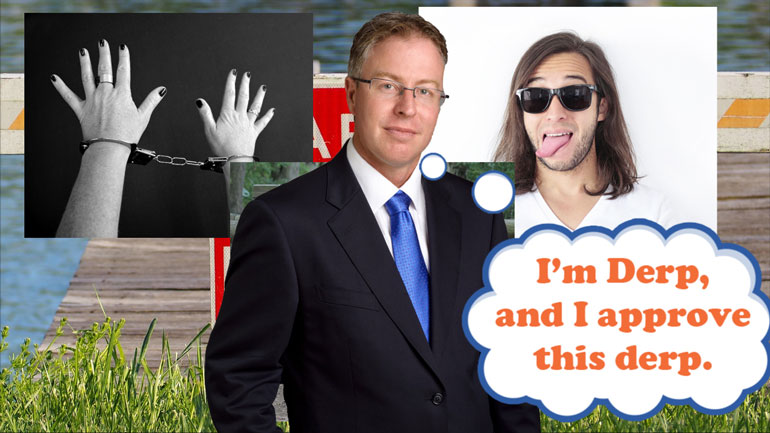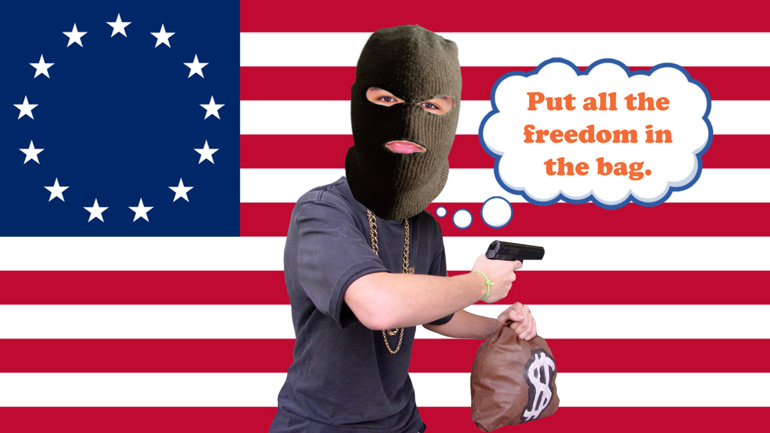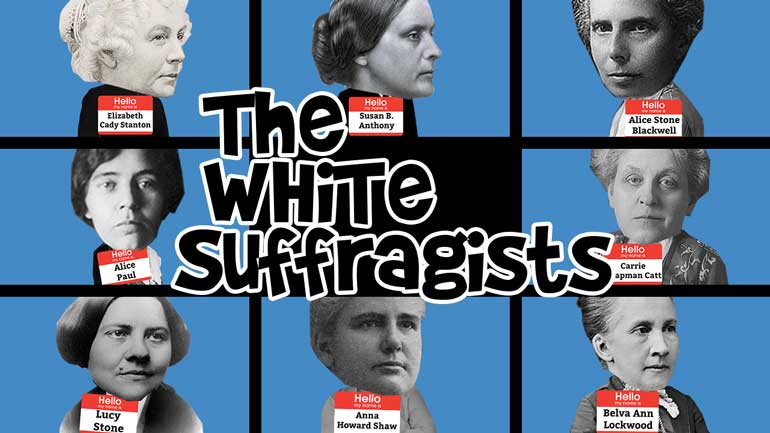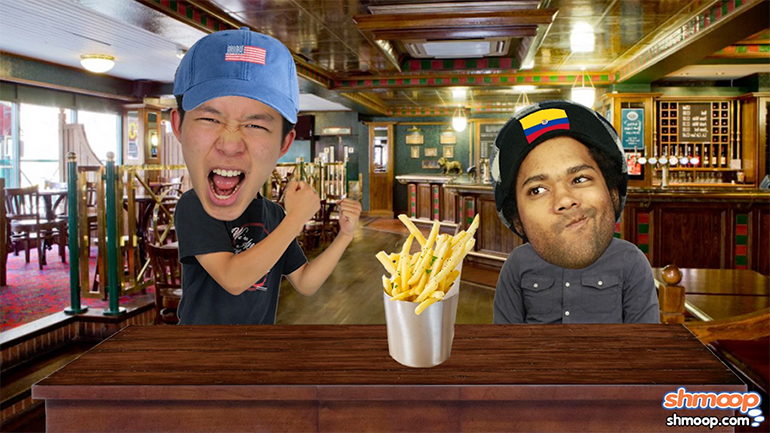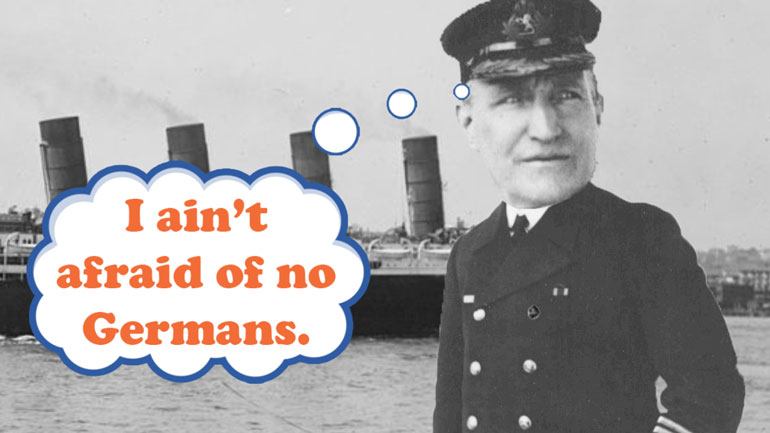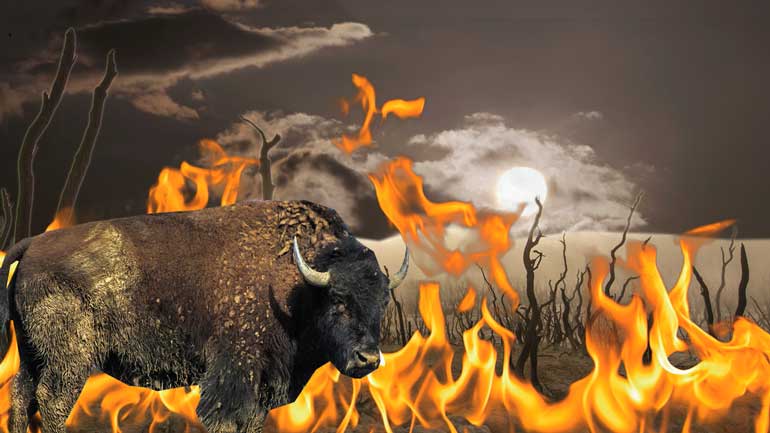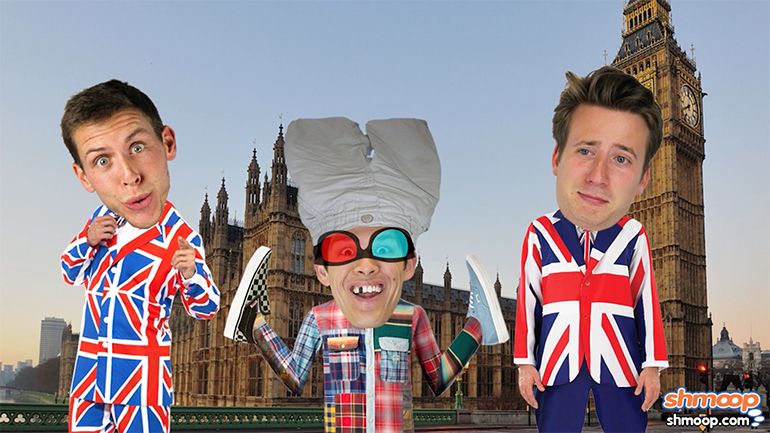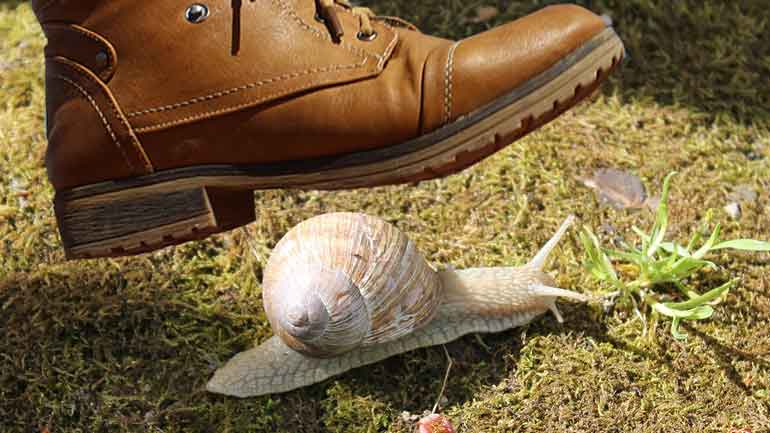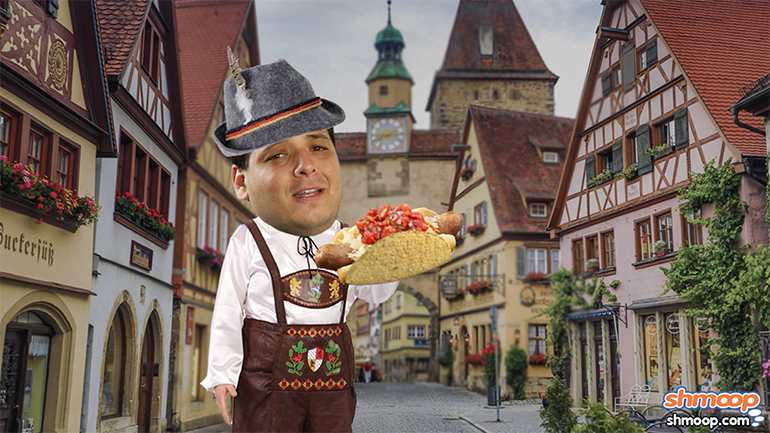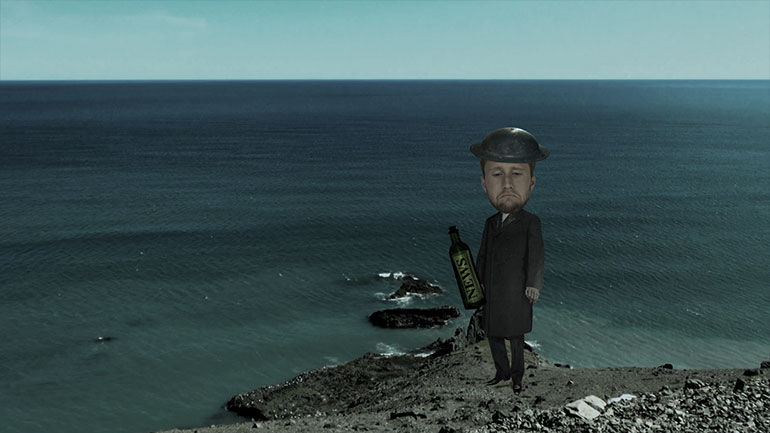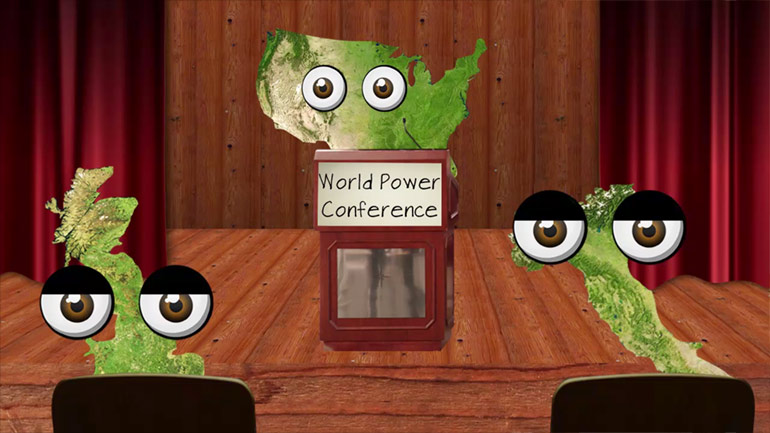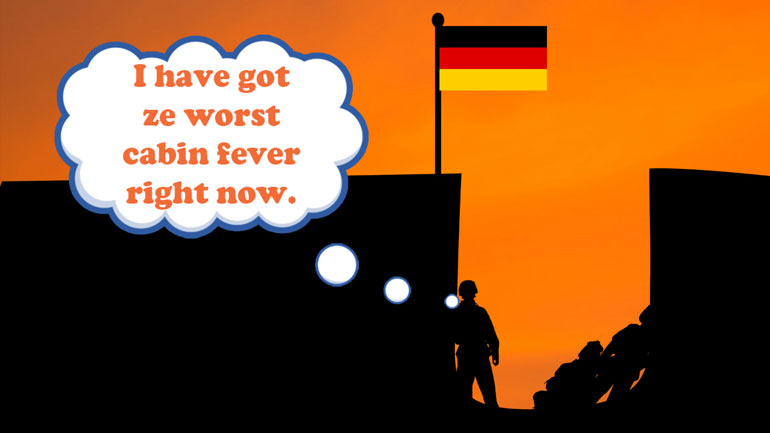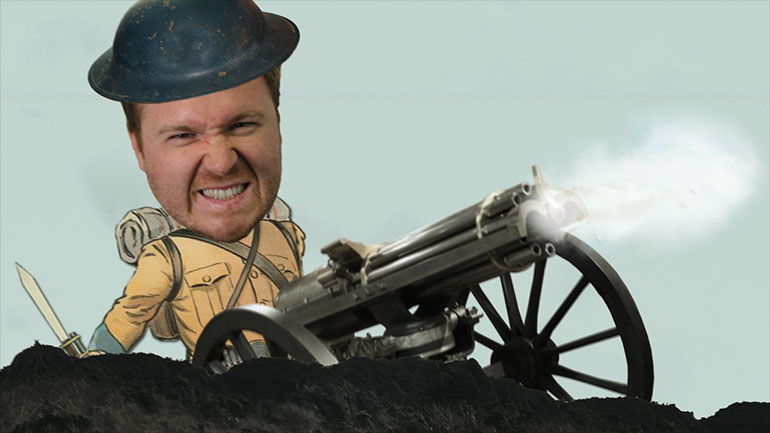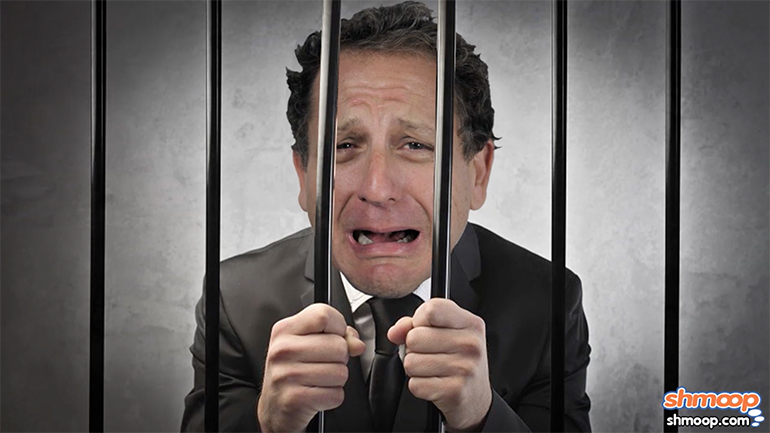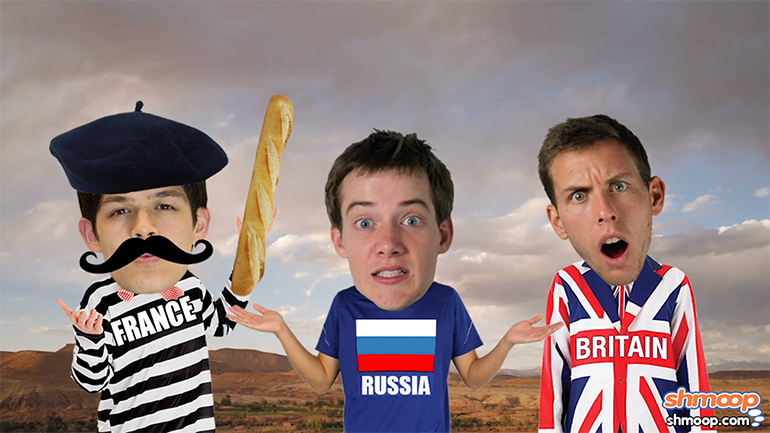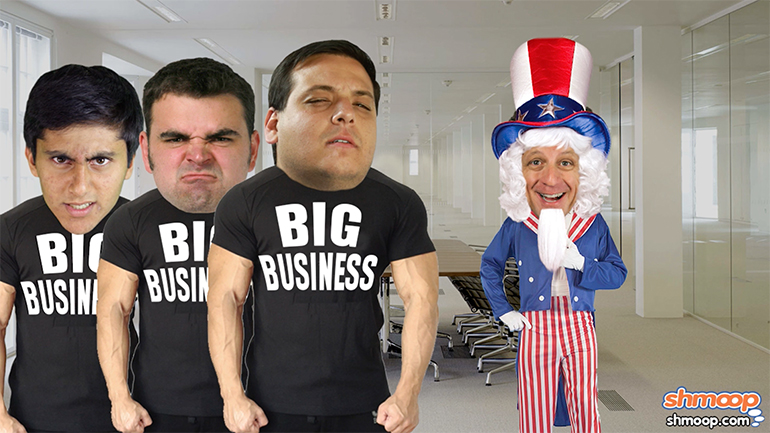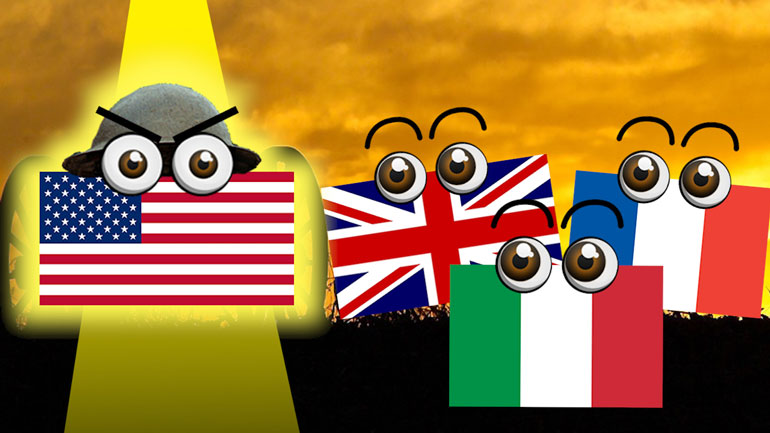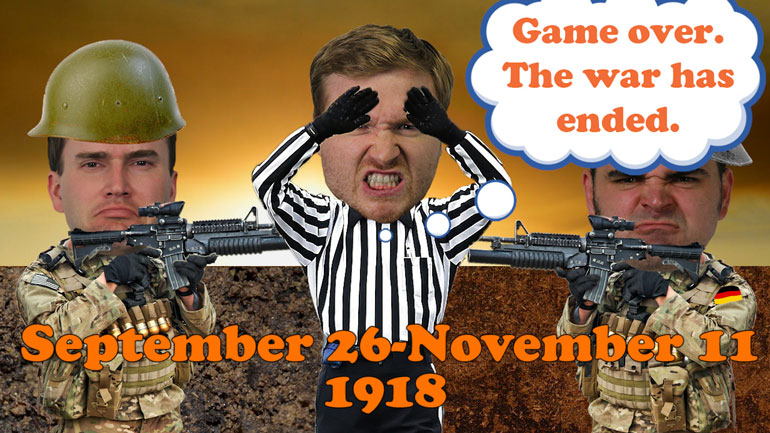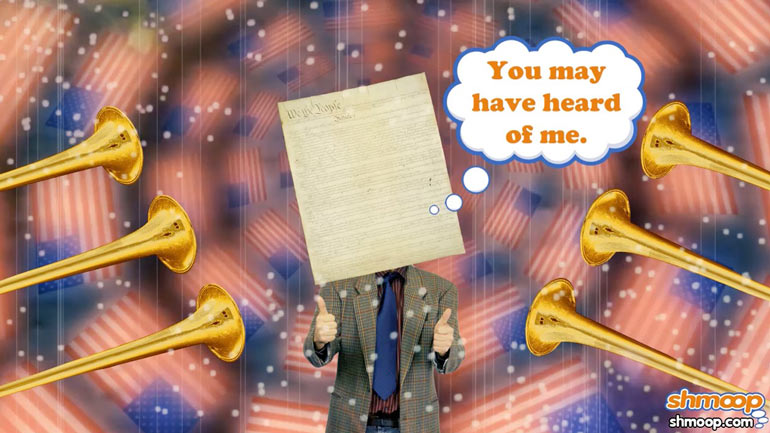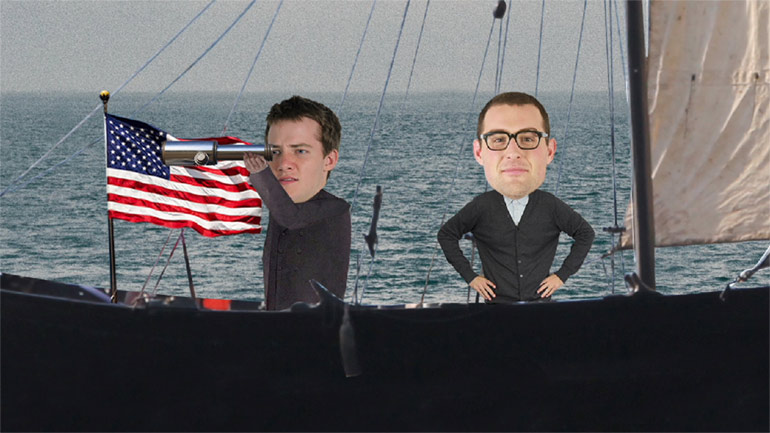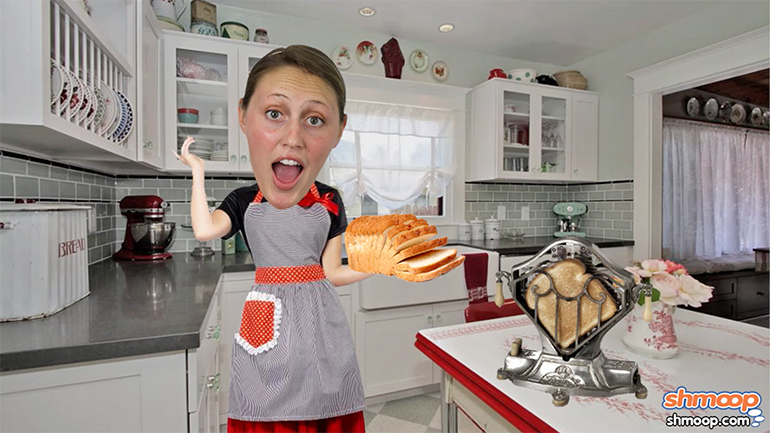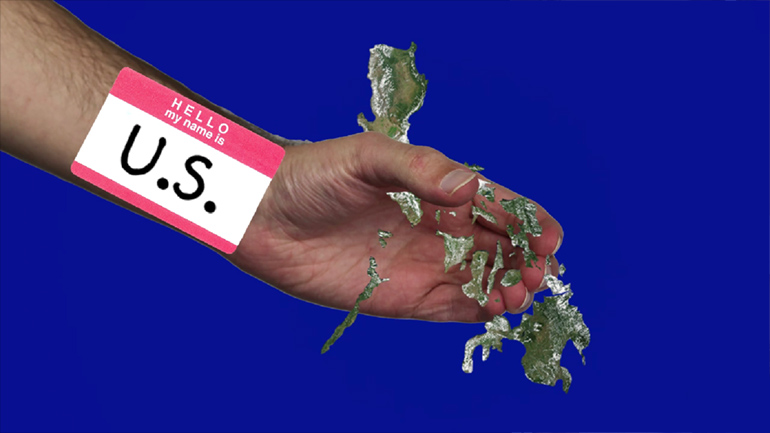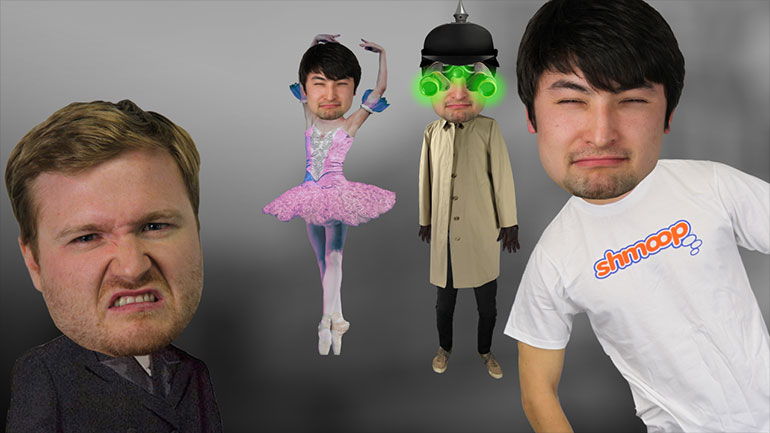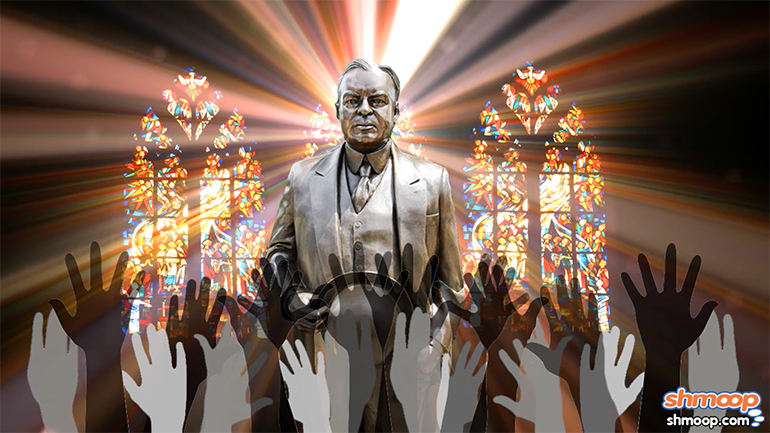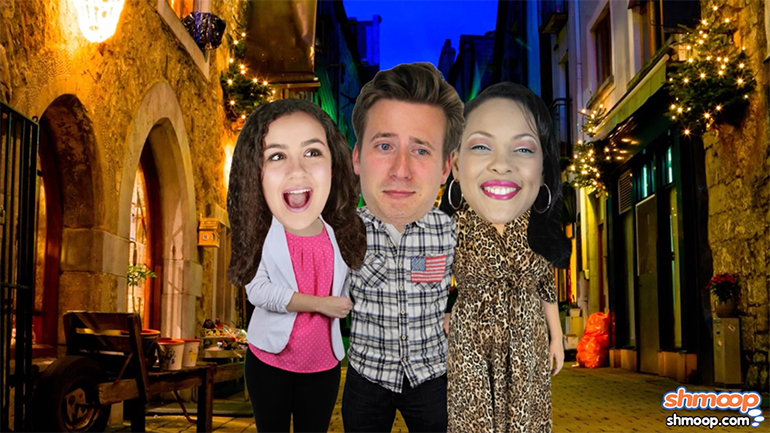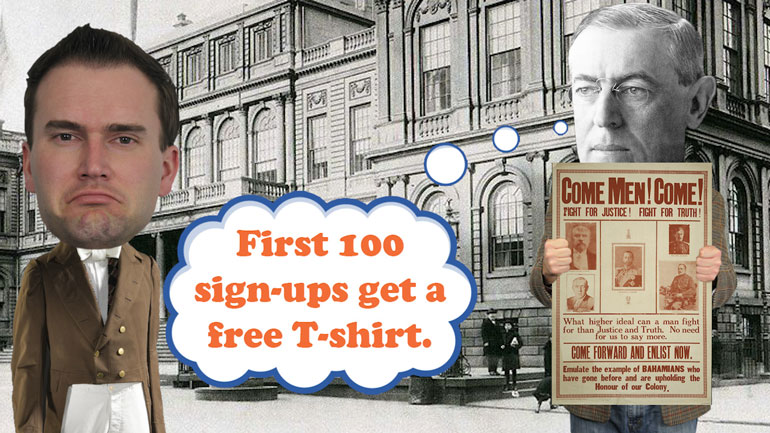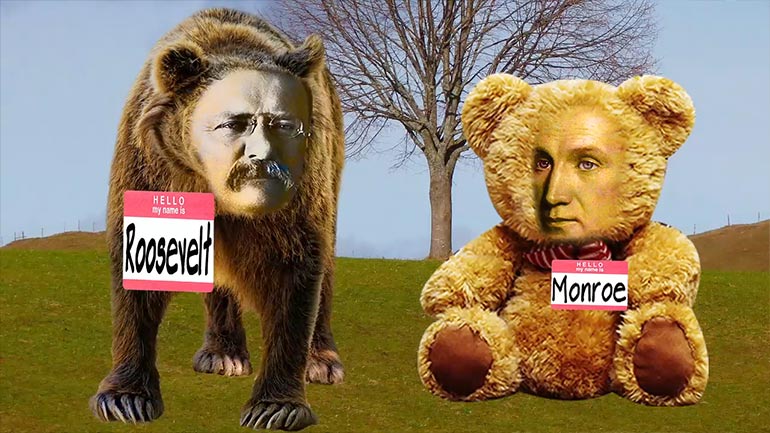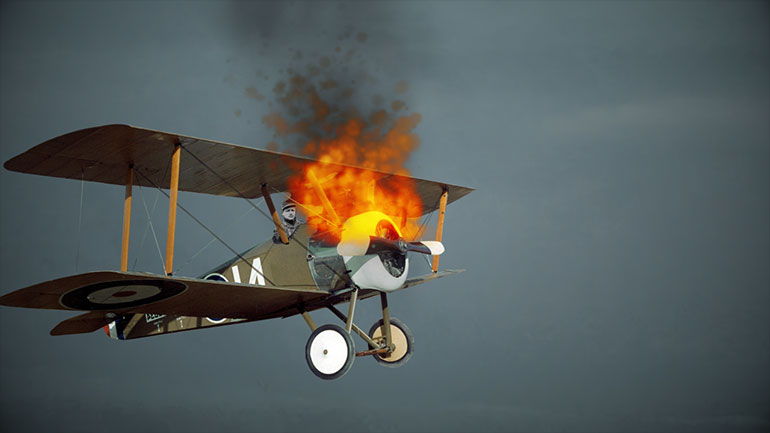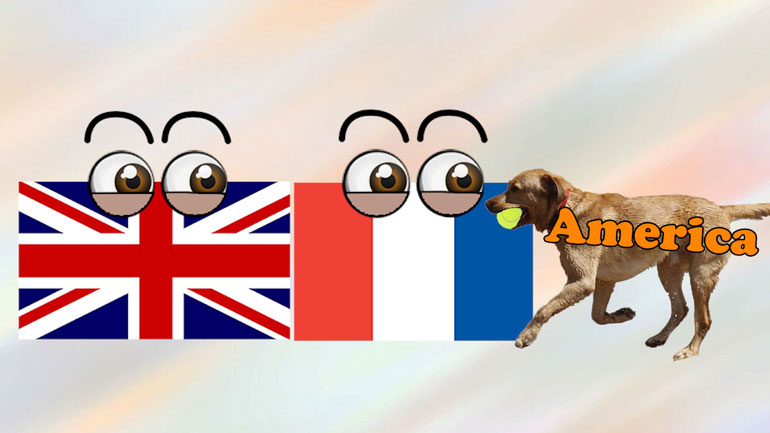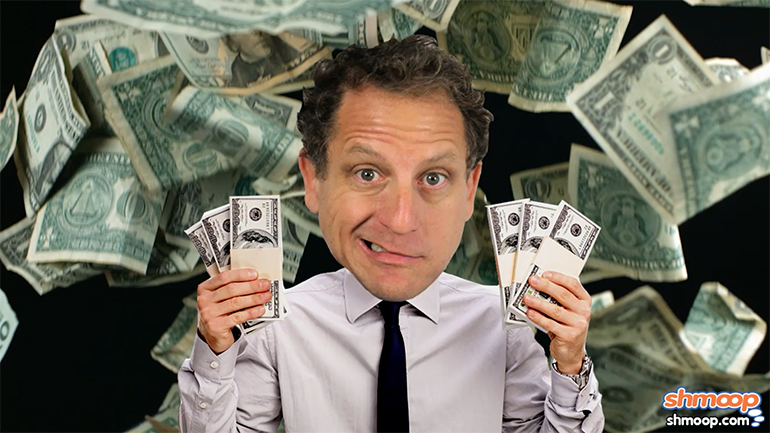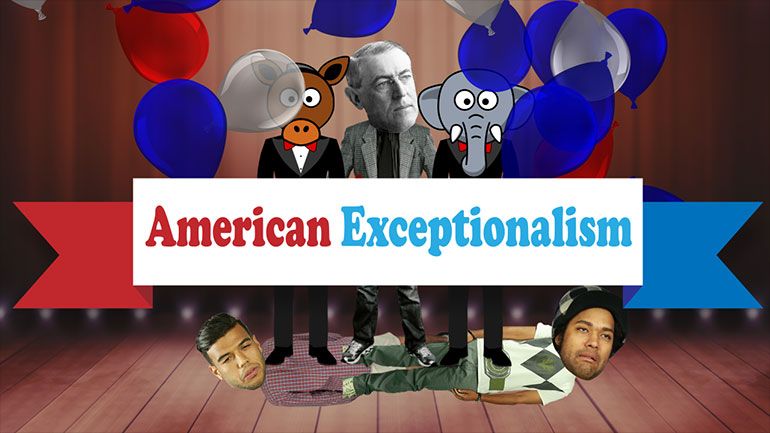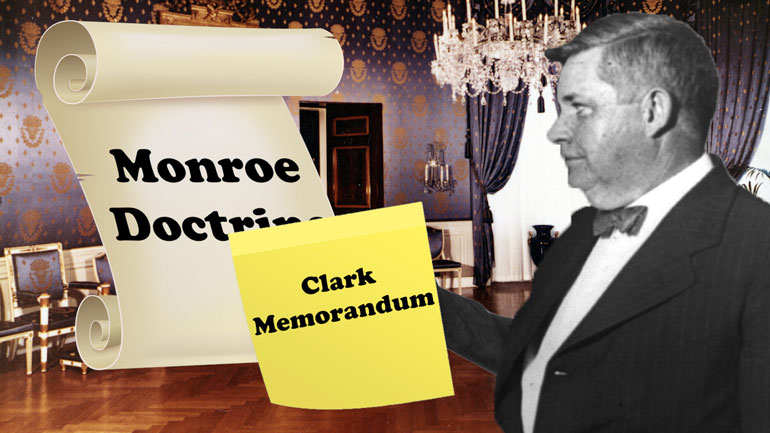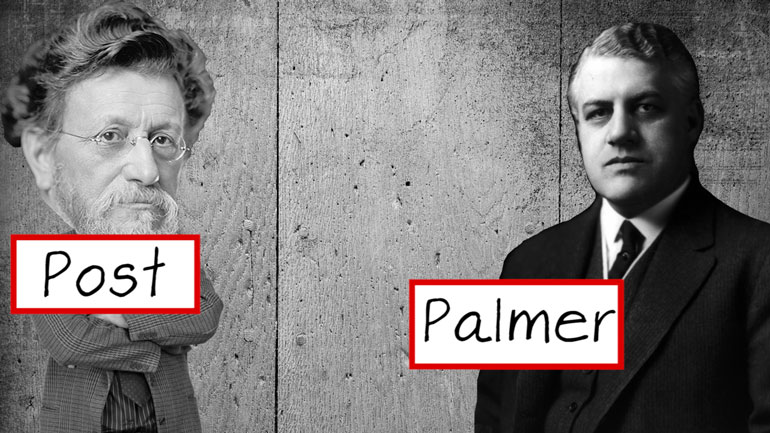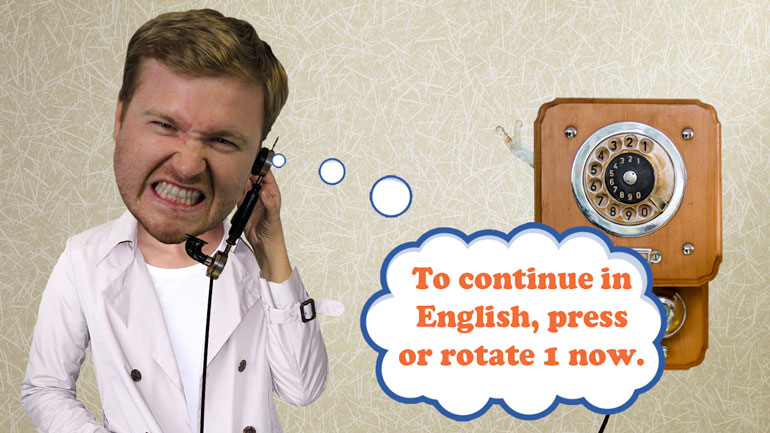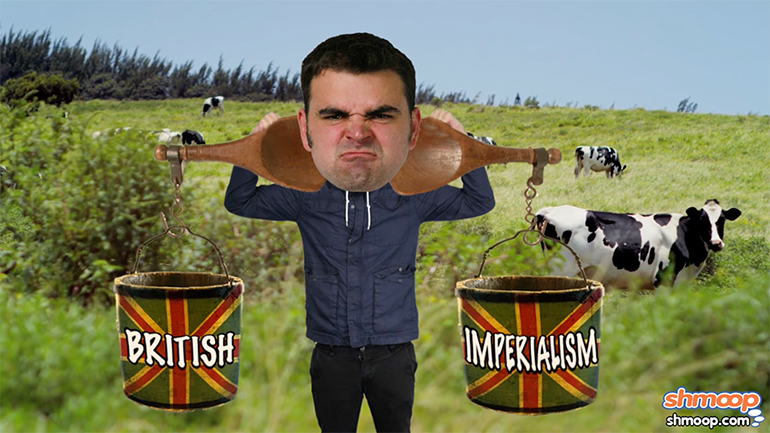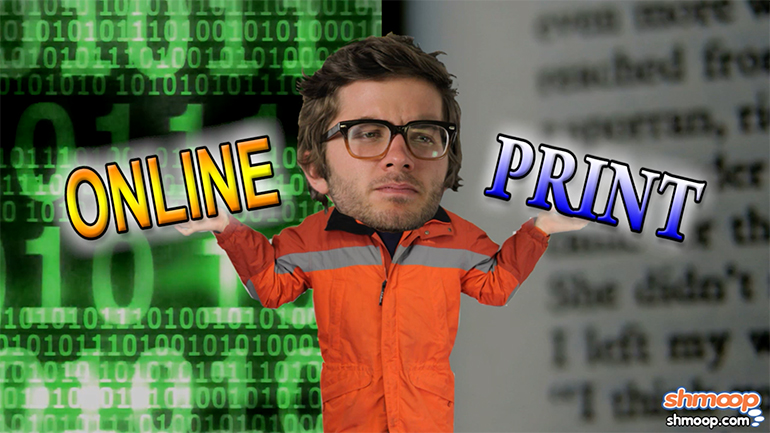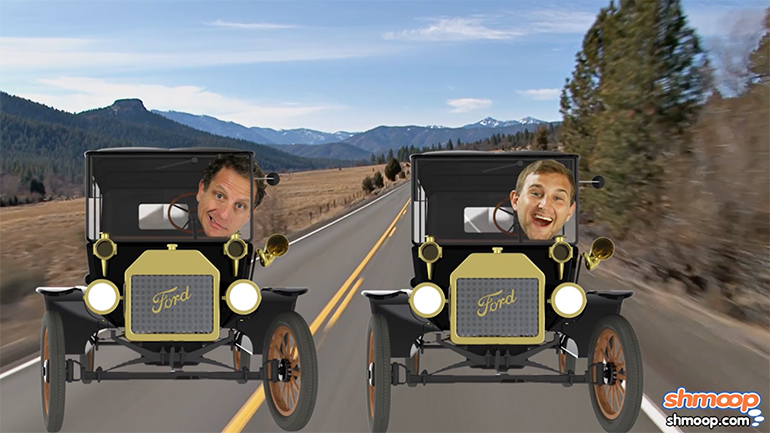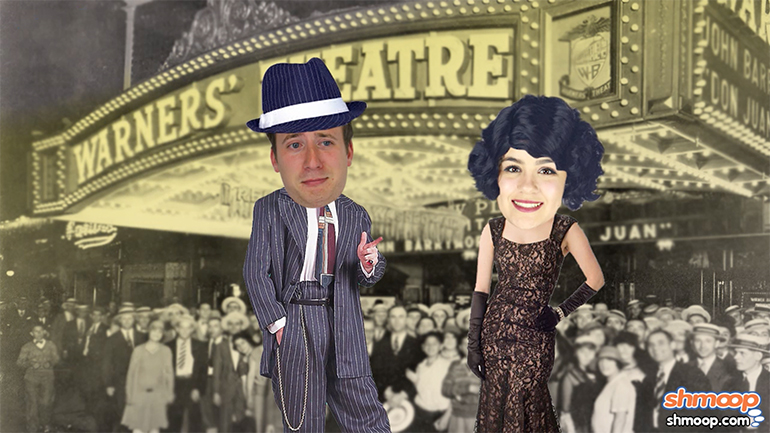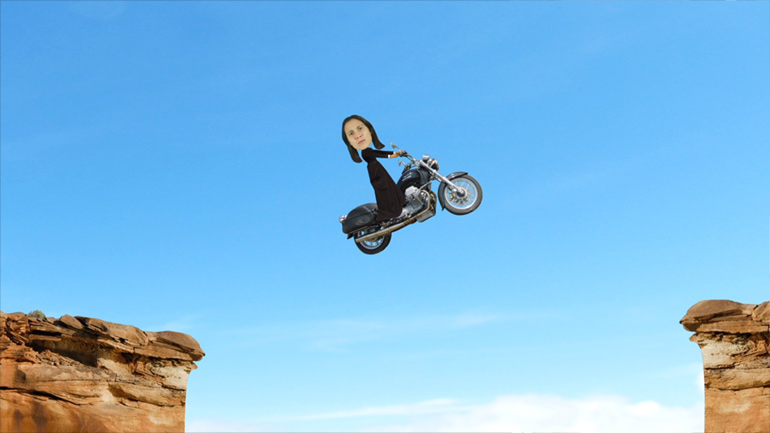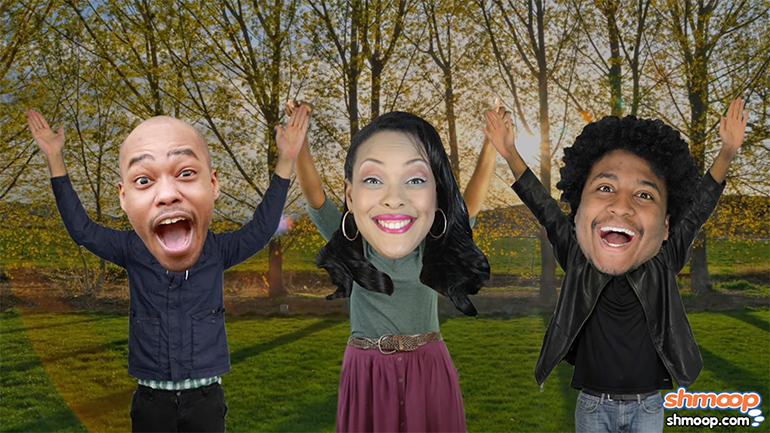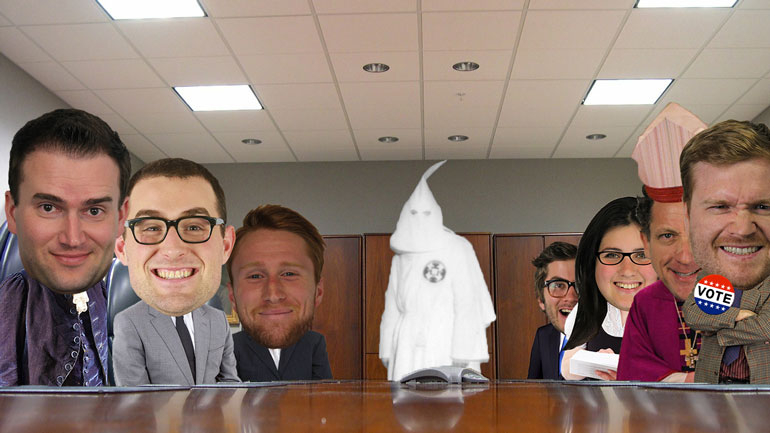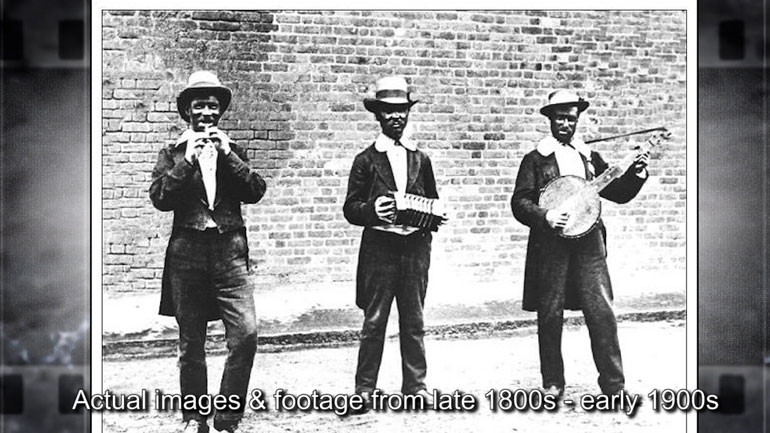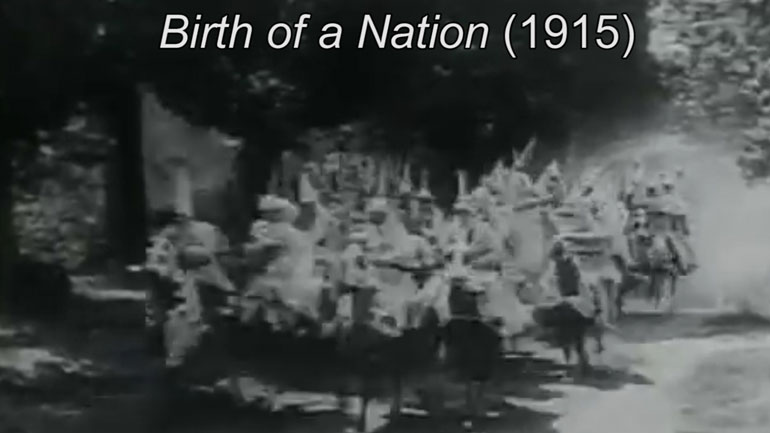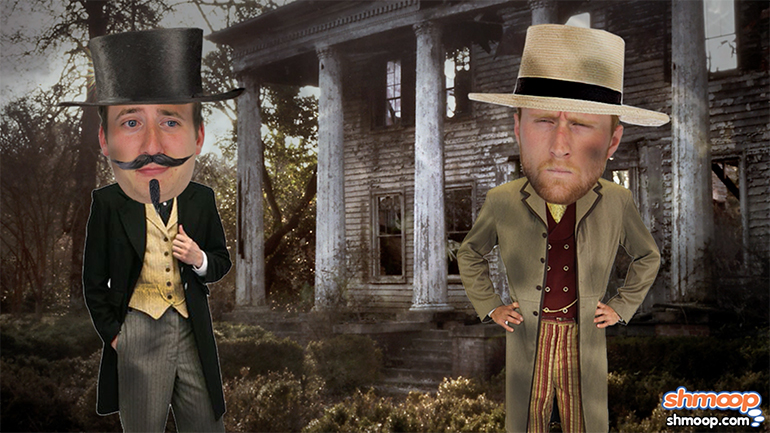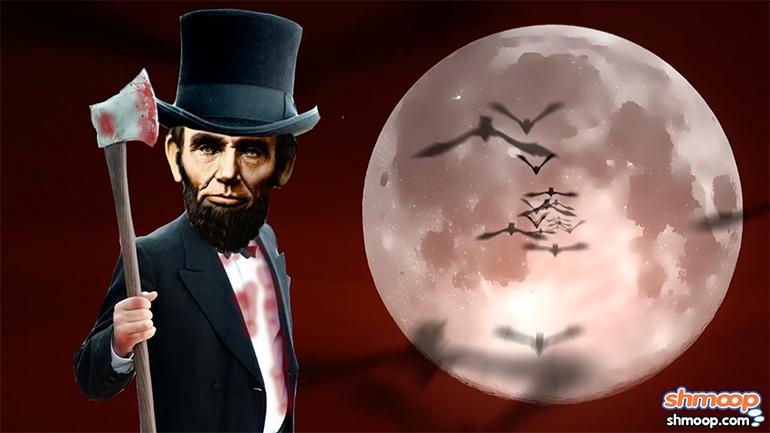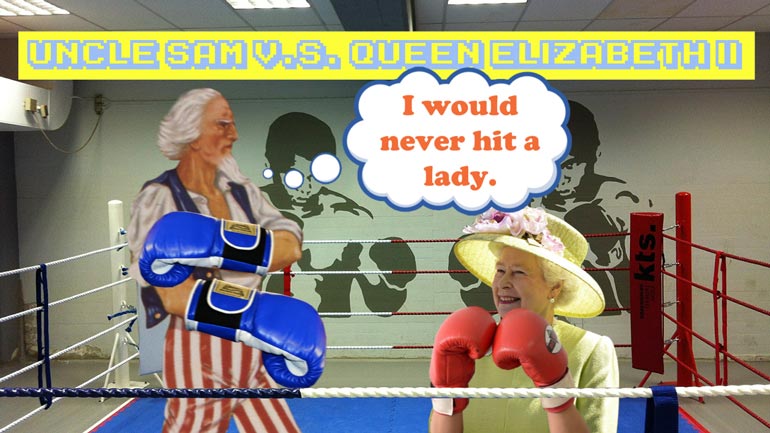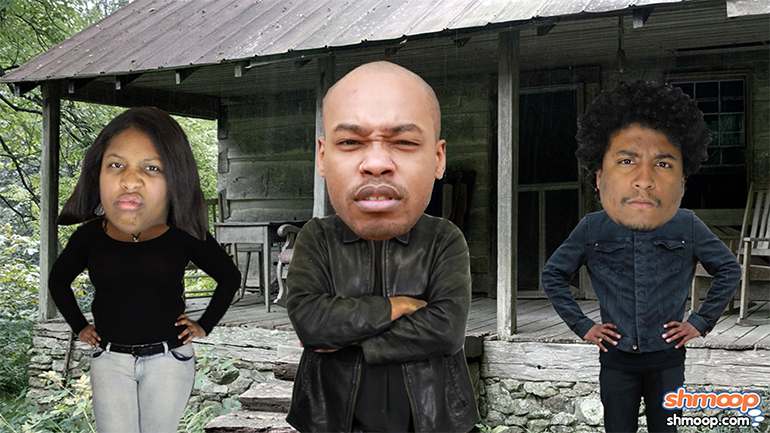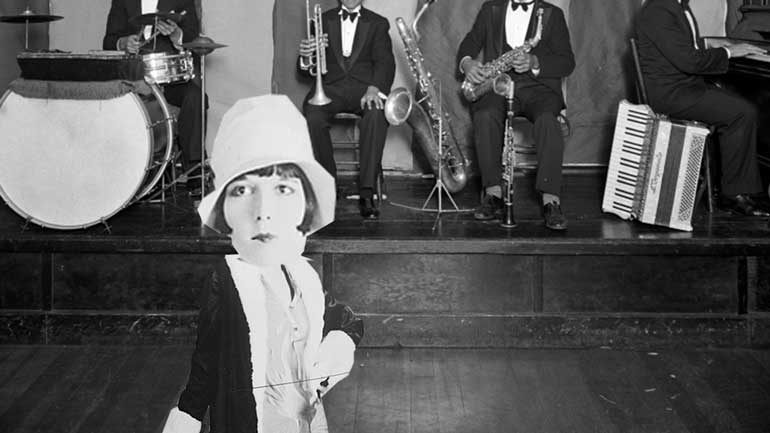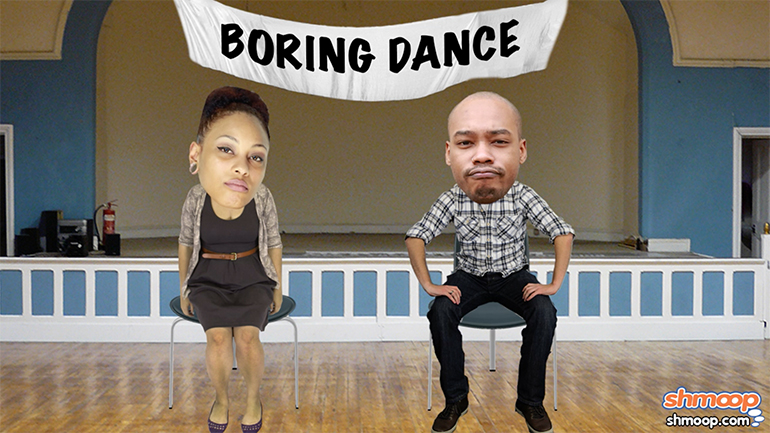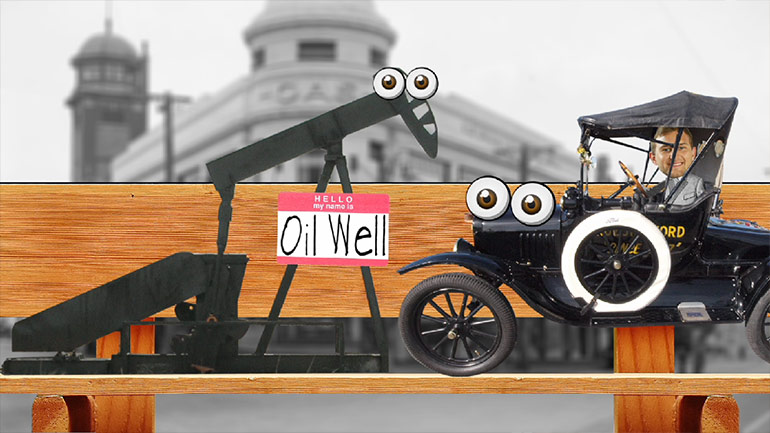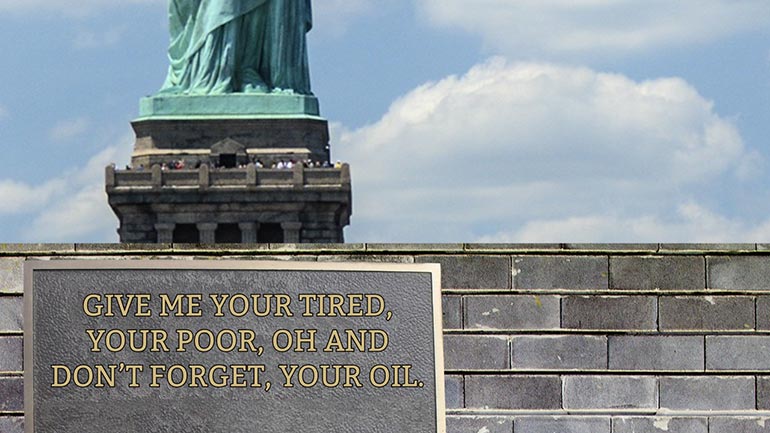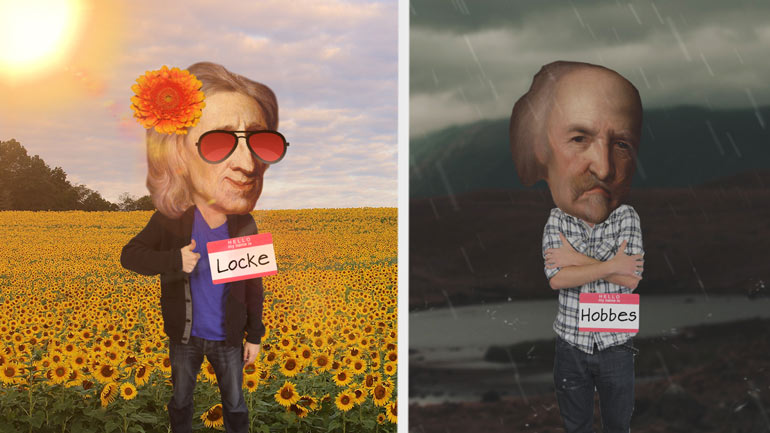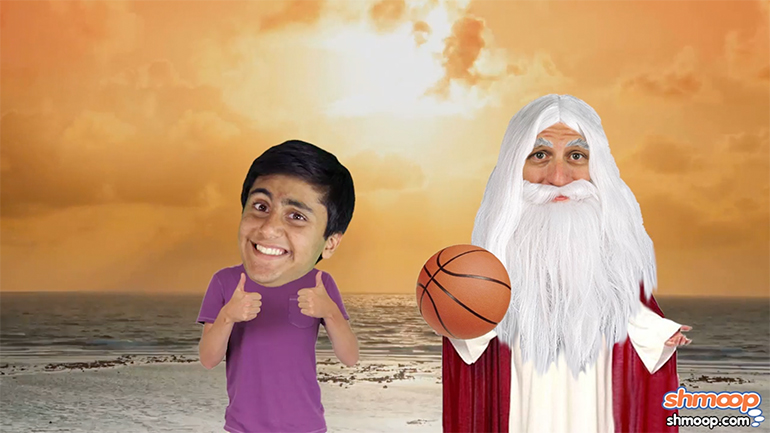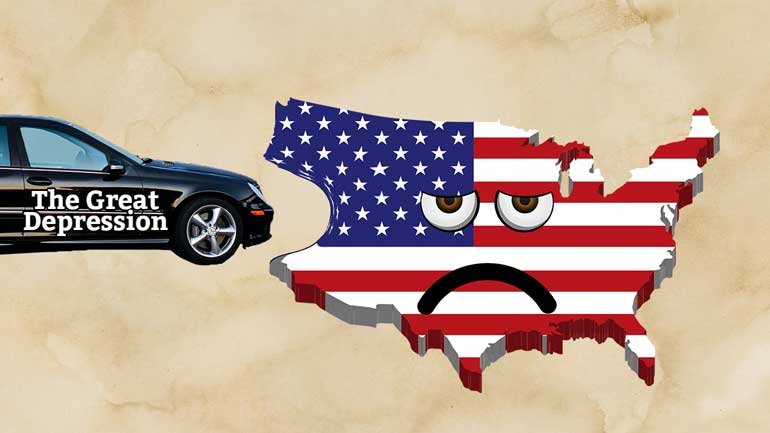ShmoopTube
Where Monty Python meets your 10th grade teacher.
Search Thousands of Shmoop Videos
U.S. History 1877-Present Videos 173 videos
Have you ever told one of your siblings to stop poking you, only to have them do something like hold their hand right in front of your face instead...
John D. Rockefeller. Greasy robber baron, or philanthropic saint? Why not both? Boy, that's a weird combination...
Today we'll learn about plans to assimilate the American Indian population after reconstruction. If you've ever seen Star Trek, you'll know that fo...
U.S. History 1877-Present 1: Jean and John 94 Views
Share It!
Description:
We hear you Rousseau. Here at Shmoop, we exclusively wear rainbow collars. Take that, society.
Transcript
- 00:03
Hobbes was only one of several...
- 00:06
Enlightenment thinkers, who the Founding Fathers...
- 00:09
were crushing on, like...
- 00:11
how about two dudes named John Locke...
- 00:13
and Jean Jacque Rousseau.
Full Transcript
- 00:15
Both of these guys not only helped to inspire the...
- 00:17
creation of the U.S.A, but also...
- 00:19
to inspire the names of characters...
- 00:21
on Lost.
- 00:22
Which one is a greater honor?
- 00:24
We're still not quite sure.
- 00:25
Let's start with Locke. He had his own...
- 00:27
take on the state of nature thing that...
- 00:29
wasn't nearly as cynical as Hobbe's idea.
- 00:31
In fact, Locke thought that the state of nature...
- 00:33
was a pretty okay place because, at the heart...
- 00:35
of things, human beings were pretty decent.
- 00:38
While Hobbes thought of the state of nature as...
- 00:40
something like The Hunger Games,
- 00:42
Locke viewed it more like the...
- 00:44
Huggy Happy Land.
- 00:46
Locke thought all people were born equal,
- 00:48
and he called general human decency...
- 00:50
the law of nature.
- 00:52
He said this law was instilled in us by...
- 00:54
by God and that we all just naturally...
- 00:56
know it. According to the law, you don't...
- 00:58
mess around with other people's lives,
- 01:00
health, liberty, or possessions...
- 01:02
especially their Eggos, but seriously.
- 01:04
Don't get us wrong though,
- 01:06
Locke wasn't totally naive. Even though,
- 01:08
he thought we were all good sharers at heart,
- 01:10
he didn't deny that conflicts do come up, especially when...
- 01:13
it comes to private property.
- 01:14
If fighting breaks out among two people over property,
- 01:17
it gets out of hand really fast, like a game of tug of war.
- 01:21
According to Locke, people decide to give...
- 01:23
up a few freedoms and come together in a...
- 01:25
society and government in order to protect...
- 01:27
their private property and their rights.
- 01:29
If people don't treat other according to the law of nature,
- 01:32
it's the government's job to protect our natural rights...
- 01:34
to life, liberty, and property.
- 01:37
Doesn't that sound familiar?
- 01:38
Locke also pointed out that if a government...
- 01:40
fails to protect people's natural right...
- 01:42
the people have every right to rebel.
- 01:45
Of course, this would mean a return to the state of nature...
- 01:47
until the people can cook up something new.
- 01:49
For Locke, that's not such a bad thing.
- 01:51
Another great thinker, Jean Jacque Rousseau, agreed in...
- 01:54
some ways with Locke's idea that the state of nature...
- 01:56
was pretty sweet.
- 01:57
Rousseau saw it as a state of peace...
- 01:59
and harmony where nature provided...
- 02:01
more than enough for everyone and competition...
- 02:04
was unnecessary.
- 02:05
Why fight a guy for a banana if...
- 02:07
there were plenty of other bananas around?
- 02:09
Unless you're a jerk.
- 02:10
Well according to Rousseau, the trouble...
- 02:12
started as populations grew and people...
- 02:14
began to live in bigger groups.
- 02:16
As society got more complicated,
- 02:18
blue collar and white collar jobs were created.
- 02:20
People began to look at each other and see...
- 02:22
differences. Bad feelings, like jealousy,
- 02:25
pride, and selfish competition emerged.
- 02:28
Yeah, sounds like Rousseau was definitely...
- 02:30
more Jedi than Sith.
- 02:32
Rousseau argued that what fueled...
- 02:34
most of this badness was the...
- 02:36
invention of private property.
- 02:38
He said that as larger and larger...
- 02:40
communities formed, the dudes who have...
- 02:42
the most land created governments to protect...
- 02:45
what they had and to take advantage of those who had less.
- 02:48
It's like the one percent created governments to...
- 02:50
get richer and keep the 99% down.
- 02:52
We're pretty sure at some point Rousseau went and, you know, occupied something.
- 02:56
Anyway, unlike Hobbes and Locke,
- 02:59
Rousseau argues that people didn't leave...
- 03:01
the state of nature willingly.
- 03:03
He said the state of nature was snatched away...
- 03:05
from the people by a small minority of...
- 03:07
property owners.
- 03:08
Rousseau sums up the problem at the beginning of his...
- 03:10
famous essay, "The Social Contract"
- 03:12
by writing, "man was born...
- 03:14
free and everywhere he is in chains."
- 03:17
In some ice skating rinks, man is in glittery spandex,
- 03:20
but that's another story.
- 03:22
But Rousseau wasn't just a Debbie Downer.
- 03:24
He had a solution for all of this:
- 03:28
All decisions are voted on directly by...
- 03:30
every single person.
- 03:31
He knew this wouldn't work out for big, whopping countries,
- 03:33
but he said these pure democracies would work...
- 03:35
in small geographic areas.
- 03:37
It's be like if Wherever-ville, Iowa
- 03:39
had all it's own laws...
- 03:41
voted on only by its...
- 03:43
43 citizens.
- 03:44
Yup, corn for all!
- 03:46
Easy when you only have 43 people to please...
- 03:48
and a lot of corn.
- 03:50
In order for this to happen,
- 03:51
an individual person has to give up...
- 03:53
some individual rights to the rights...
- 03:55
of the the people as a whole.
- 03:57
Rousseau calls this coming together,
- 03:59
this collective decision making body,
- 04:01
the "general will."
- 04:03
Sure we might want to drive a monster truck down...
- 04:05
while texting, but we got to realize that some...
- 04:07
people aren't gonna be cool with that.
- 04:09
We'll be back later. We gotta go sell the monster truck we just bought.
Related Videos
Ever heard of a "living document"? They eat and breathe just like the rest of us! They even walk around on their own two legs. Okay, fine—maybe t...
If the Puritans had gotten their way, religion would play a much larger role in lawmaking these days. Want to know more? Watch the video for all th...
What happened between the creation of the Articles of Confederation and the ratification of the current U.S. Constitution? This video analyzes the...
The Modernists thought the world had a lot of problems, and they were intent on fixing them—or at least talking about fixing them. Unfortunately,...
This video explains Federalism and the quest for a fair balance between state and national power. It covers the progression and compromises of Fede...
